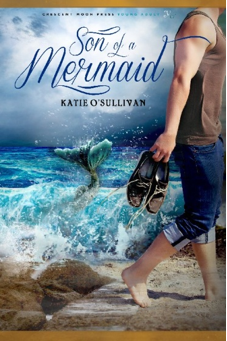CapeWomenOnline - Where Cape Women Shine
Your local venue for the women of Cape Cod to share their ideas, experiences and resources while inspiring each other in their life's journey
Inspire . Encourage . Network . Share
In her column The Write Way, Katie O'Sullivan discusses common editing errors that can send your writing directly into the slush pile.
If you have a question about writing or editing we'd love to hear it!
Please email your questions to katie.osullivan@yahoo.com
The Write Way: To Review or Not to Review, Is That Even a Question?
by Katie O'Sullivan
Ah, Fall. The college students are gone and yellow school buses replace sightseers in clogging Cape roadways. Back to School time. Time for backpacks and chalkboards, reading assignments and book reports.
Writing book reviews is a little like when you wrote book reports back in school. Either you choose a book to read or one is assigned to you. You read the book, and then write a brief synopsis about what you liked and didn't like about the book.
Simple, right?
Not so much.
For many people, the idea of writing a book review is a Daunting Task for professionals only, something akin to running a marathon. Or dusting.
Other people think writing a review is EXACTLY like writing a book report, and have no qualms about adding spoilers that give away key plot points and basically ruin the story for whoever reads the review.
One Blogger friend compared spoilers in reviews to movie trailers that give away all the best scenes.
The truth lies somewhere in the middle.
If you read my blog, you know that I wrote a few times over the summer about the importance of reviews. Reviews on Amazon.com not only help other readers decide to spend their money on a certain book but also help Amazon choose which books to recommend to their online buying audience.
The more reviews a book has, the more likely Amazon will be to recommend it to other readers.
Goodreads is another great resource for readers to find reviews by other readers and determine whether a specific book is a good fit for their own reading tastes.
Both of these sites are open to the public and have the advantage of letting the reader write whatever they want and grant as many – or as few – stars as they wish.
Plus, writing reviews can be fun – especially if you enjoyed the book!
So what makes a good review, and how do you write one? Well, there's no one "right" way to write a review, but there are some general guidelines, as well as a few "Don't Do It" tips that I'd like to share.
What a Review Should Include: "The 5 Ws"
Reviews don't have to be long or complicated, but they should give the reader a few basics as to who and what the book is about, and what's different or unique about this author's take on the subject.
My latest book, for instance, is about mermaids… but the main character is Shea MacNamara, a boy (a twist for a mermaid story!) who discovers not only that he's got mermaid blood running through his veins, but that there's all kinds of palace intrigue going on just off the coast of Cape Cod. He discovers that his roots – and his destiny – lie far below the surface of the Atlantic.
- Who are the main characters? Tell us their names and something relevant or memorable about each – as they are introduced at the beginning of the book, not who they are at the end.
- Where and When does the book take place? Is it a Regency romance novel, or science fiction set on Planet Xenon in the late 40th century? A cowboy mystery in West Texas at the turn of this century? Give us a few sentences to set the scene.
- What is the main conflict? Usually the back-of-book blurb summarizes the plot, and it might be acceptable to use the author's phrasing for the conflict if you agree with it – but don't just copy and paste. Tell us in your own words.
- Why? Why did you like (or not like) the book? Why do we care about these characters and what happens to them? Why should we spend our money – and our time – reading this book instead of another?
DON'T DO IT!
*DON'T just repeat the back-of-book blurb and then say, "I liked it." Boring! We can read the blurb for ourselves. WHY did you like it? WHAT made it interesting? Tell us!
*DON'T make the review solely a critique of the author's writing style. Yes, style is important and warrants notice, but a review should be about the story and characters too. And, as an addendum to that…
*DON'T make the review a critique of the author as a person. Have you met the author and loved her? Hated him? Have you written a similar book that you think is much better? None of that is relevant to the review of this particular book.
*DON'T give away key plot points. If one of the key characters dies in a battle scene and the hero has to bring her back to life, DON'T tell us about it! Let us get to that scene in our own sweet time. If it's a romance, we expect the Happily Ever After, but DON'T tell us which guy the heroine chooses – that ruins all the suspense! And as for mysteries – just DON'T. Giving away whodunit is a big no no.
*DON'T be boring. If the review sounds ho hum, how will it compel others to read the book? Again, focus on WHY you liked the story, the characters, the conflict, the writing…
Think of it this way: You're having coffee with a friend and tell her you just read a great book. She says, "Tell me about it." What would you say to explain WHY you loved the book?
Once you've answered the basic questions, you're well on your way to writing a great review. Remember, what makes a review "great" is not the heaping of praise on the author, but helping other readers decide if they'll enjoy the book.

Katie O'Sullivan loves editing, writing and playing with words. She lives in Harwich with her family, and the big dogs who "make" her walk on the beach every day.
Her third book, the young adult novel SON OF A MERMAID, is available from Crescent Moon Press. Check the Event listings for upcoming book signings, or visit her blog for details.
For more information about working with Katie to make your words sparkle on the page, email her at katie.osullivan@yahoo.com

FROM THE MAILBAG:
King vs. king
I was recently asked about capitalization rules, especially when using titles like king, queen, prince, president… and I had to admit I was a little hazy on which rules apply in what situations so I had to look it up. (Yes, even editors look things up!)
The general rule is that if a title precedes a proper name (King Edward, Prince Charles, President Obama) then the title IS ALWAYS capitalized. If you're talking about kings and queens in a general sense, then the words are NEVER capitalized.
Then there's the hazy middle ground that makes editors shudder.
If a writer is talking about a specific king, but doesn't name him, it's sometimes capitalized and sometimes not. If the title is being used in place of a name for a specific king, it's usually capitalized but not always.
Bottom line? In the hazy areas, a writer and editor need to decide which way to go and STICK WTH IT. Consistency is the key, and makes for a more enjoyable reading experience.
And when in doubt… ask your editor.




